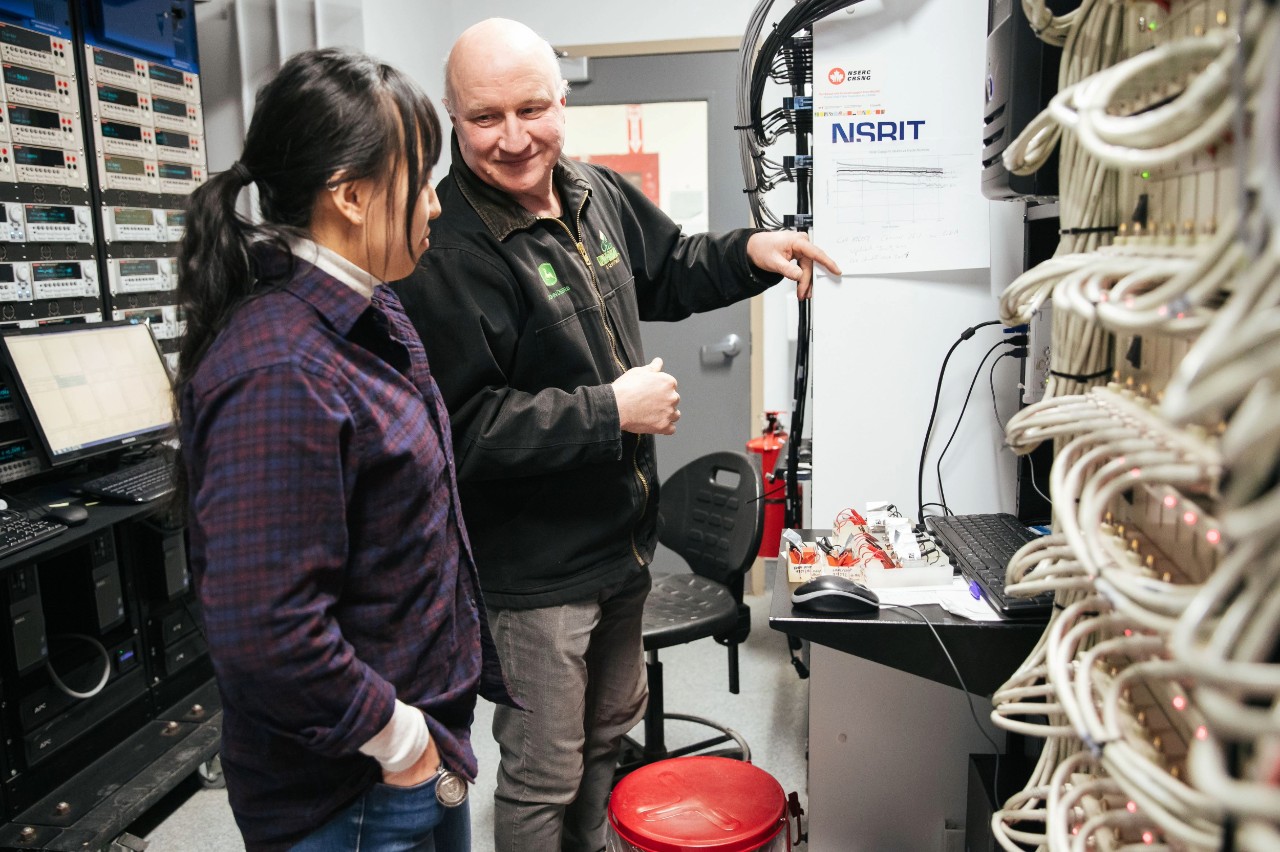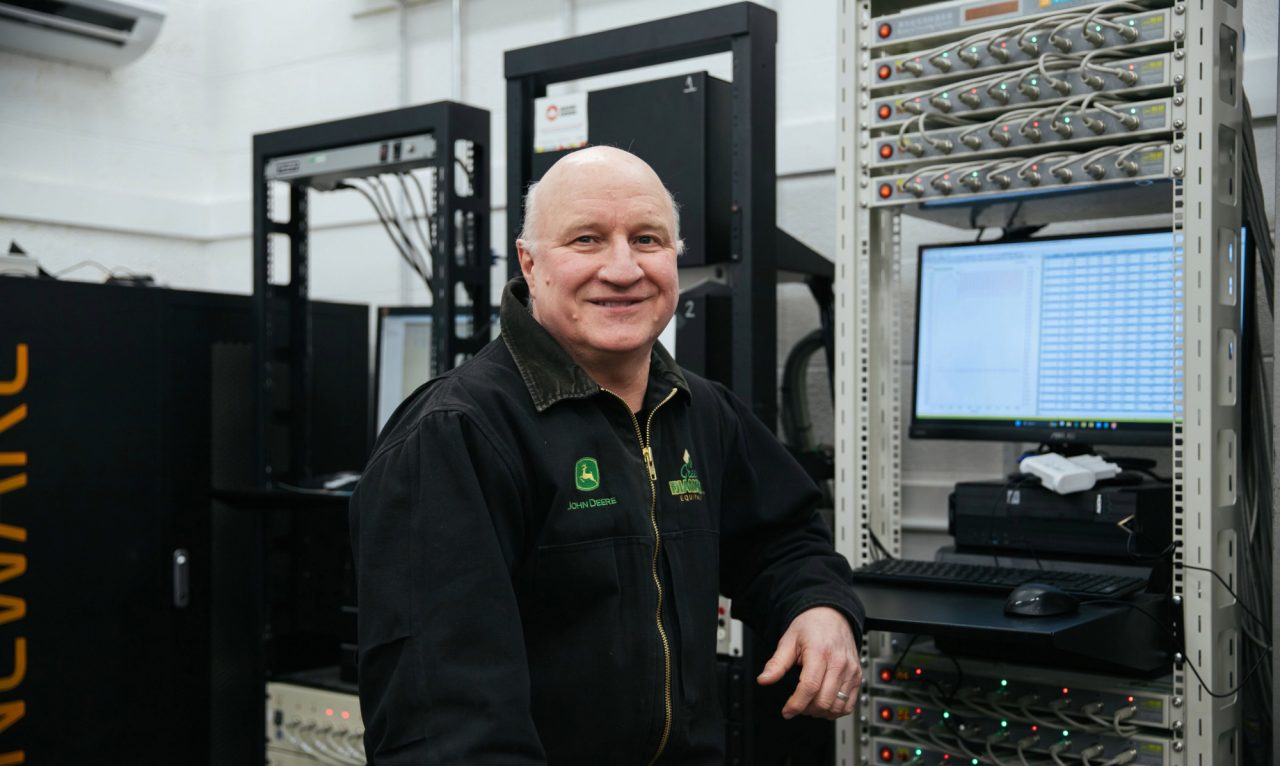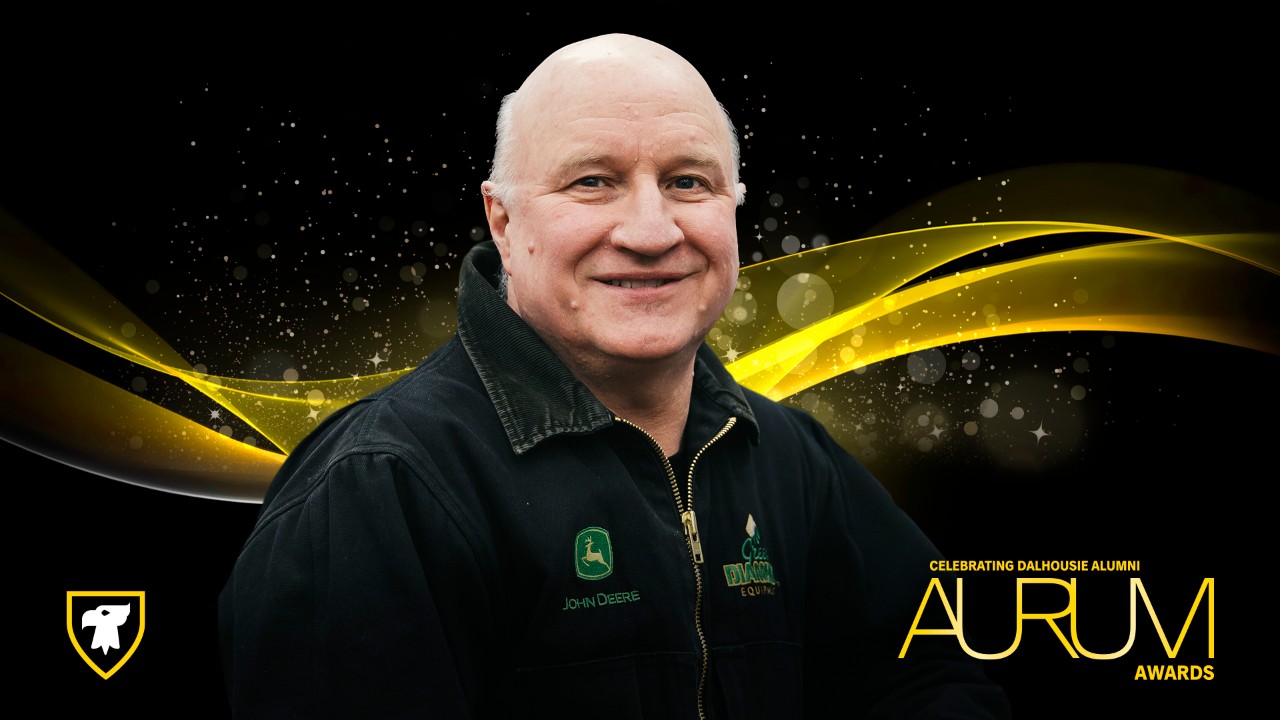Posted: May 24, 2024
By: Emily MacKinnon
Growing up on an 83-acre farm in rural Lunenburg County, N.S., Dr. Jeff Dahn (BSc’78) did not set out to become a battery scientist and research partner with Tesla Motors.
But it was clear from a young age that Dahn had an aptitude for learning and innovation.
Dahn played soccer for the Dal Tigers during his undergraduate studies, even going to the national championships with the team four times. He loved sports but he also knew he liked science.
In his first year in the Faculty of Science at Dal, physics professor Ernie Guptill showed Dahn how fascinating that branch of science could be. It was a good fit: by the time he was 25, Dahn had earned a PhD. He went on to work at the National Research Council, where he and a colleague worked on the fundamental science of lithium-ion battery materials, which now are used in cellphones, laptops and electric vehicles (EVs).
“I was very fortunate to be involved in this lithium battery thing from the very beginning,” he says, as if it was serendipity that led to his impressive career and not an incredible amount of hard work and skill. "There's a whole cohort of us ‘old-timers’ around the world, and we've just done useful things and we're working on the right problems,” he says, shrugging.
A natural teacher and mentor
Despite his numerous accolades — including the prestigious 3M Industrial Research Chair, the Governor General’s Innovation Award, the Killam Prize, the Gerhard Herzberg Canada Gold Medal, and more — Dahn remains humble. He attributes much of his success to the students he’s taught at Dal, many of whom have gone on to become industry leaders.
For instance, Dr. Chris Burns (MSc’11, PhD’15), CEO of NOVONIX, a leading supplier of battery materials and technologies, and Dr. Leah Ellis (BSc’11, MSc’13, PhD’18), the co-founder and CEO of Boston-based Sublime Systems, whose decarbonized cement seeks to keep the world building sustainably.
“Something like eight of my previous students are CEOs of their own companies now, a lot are vice presidents and chief technology officers. And that really is the thing I'm most proud of,” Dahn says.
Dahn is a beloved teacher and mentor, which is evident in the bursary some of his students established in his name as a 60th birthday present. The bursary, which Dahn and his wife also contribute to, supports two first-year Nova Scotia students from rural backgrounds pursuing science and engineering. “It's the best birthday gift I could’ve ever gotten,” he says.
Having grown up in a rural community, this focus on students from rural backgrounds is particularly important to Dahn. “You become adept at doing things with your hands when you live in a rural area: building chicken coops or fixing tractors,” Dahn says. Sometimes, students with urban upbringings come to university not knowing how to use a screwdriver. “They’re always fine in the end, but kids from rural backgrounds just bring more mechanical skills to the table right from the start,” he says.

Retired, but not really
Now “retired in quotes” from teaching, Dahn continues to focus on what he calls the “bee in his bonnet”: solving the challenge of predicting battery lifetime. How does one prove a battery lasts for 50 years without spending 50 years testing it?
But as lithium-ion batteries get better and better, testing how long they will last gets harder and harder. He leads the Tesla-funded Jeff Dahn Research Group in exploring innovative solutions, such as sodium-ion batteries, which might offer a cost-effective and sustainable alternative to lithium-ion.
And clean-tech solutions, Dahn says, are now all but required.
Team EV
Electric vehicles are a big part of a greener future, Dahn asserts. He knows some people struggle with the cognitive dissonance of plugging an electric car into a panel powered by some fraction of fossil fuels, but he references advancements in wind and solar energy, concluding that renewable sources are the only way forward.
“Fossil fuels are less than 50 per cent of our energy source now,” he points out, “which means driving an EV is already better than a gas car.”
Dahn says charging stations are easy to install in homes and many public places also have them. And as for the cost of replacing an EV’s battery: “I don't think the average EV owner is ever going to have to replace a battery,” he says. “In many cases, the battery will outlast the vehicle.”
He also has absolutely no qualms about range anxiety (the worry that an EV’s battery will run out in a spot that doesn’t have a charging station, leaving the driver stranded). “If you’re driving incredibly long distances, you’d have to stop and charge somewhere along the way, but we’ve had our EV for two years now and we’ve had to use a public charging station only once,” he says.
Family life in Lunenburg
These days, things are more family-centred for Dahn: his extended family still has the 83-acre homestead in Lunenburg, where he maintains the woodlot. He and his wife also have a cottage on the water, where they spend time with their children and grandchildren, something that is important to Dahn. “The grandchildren are taking up a lot of our time and that's really quite fun.”


